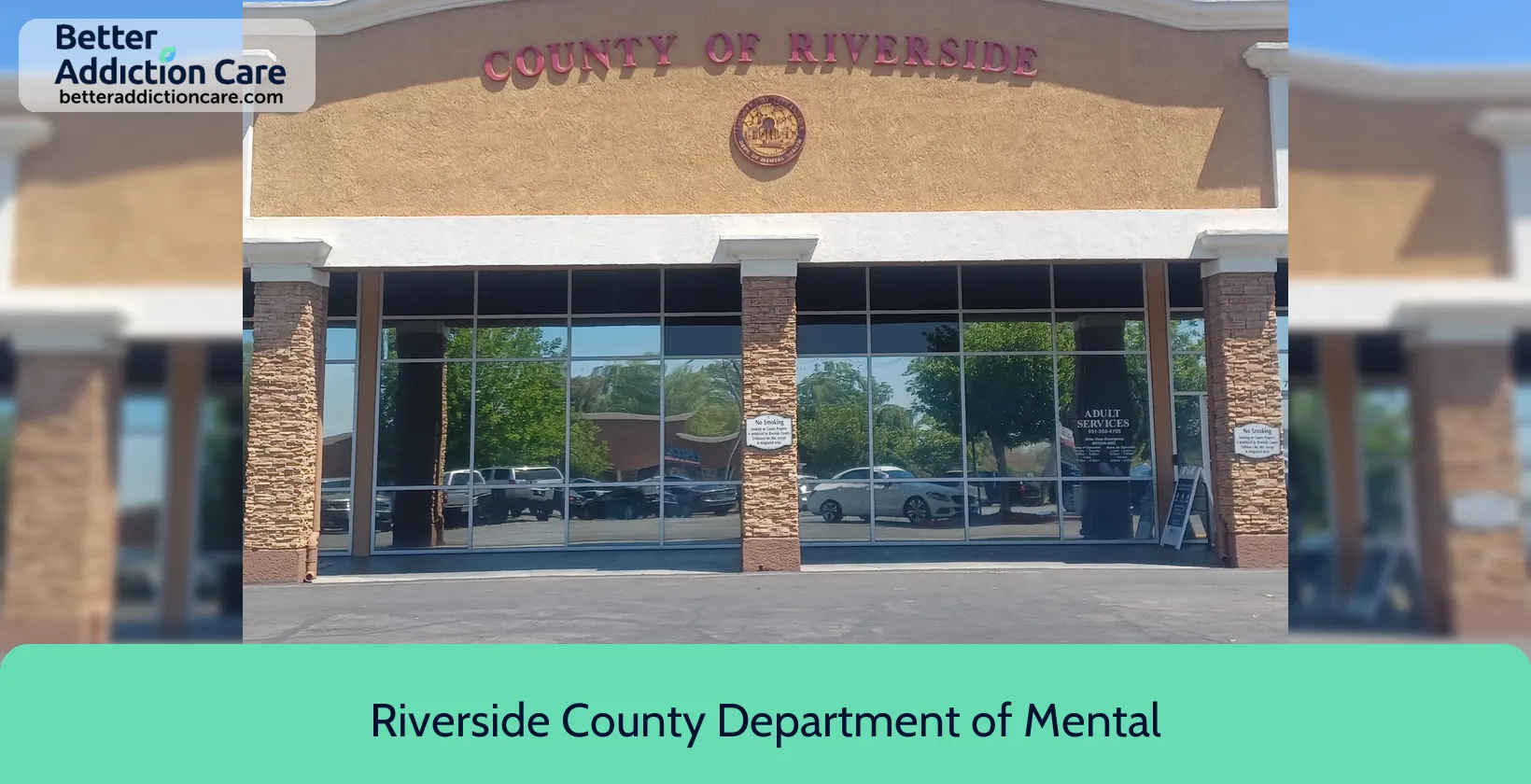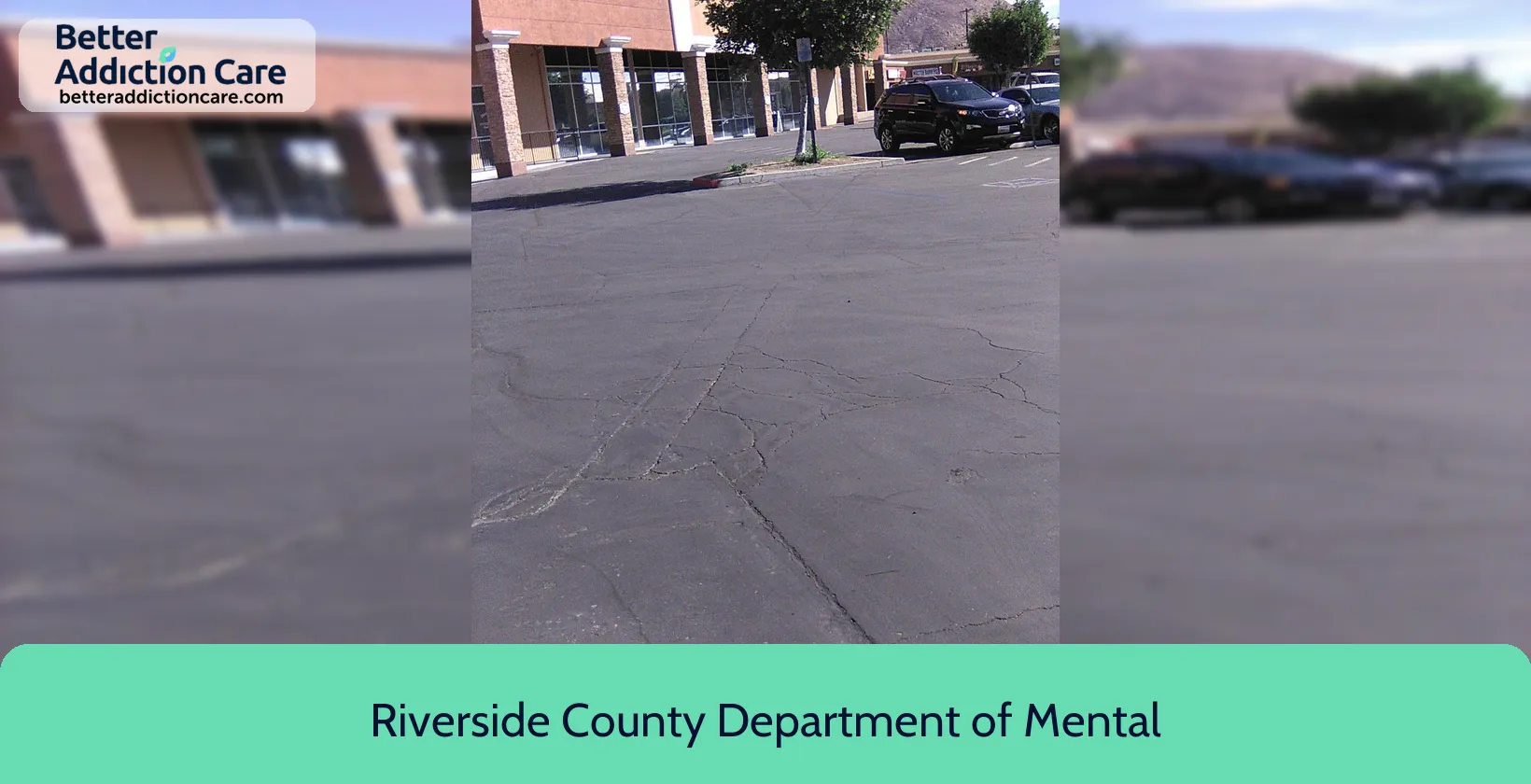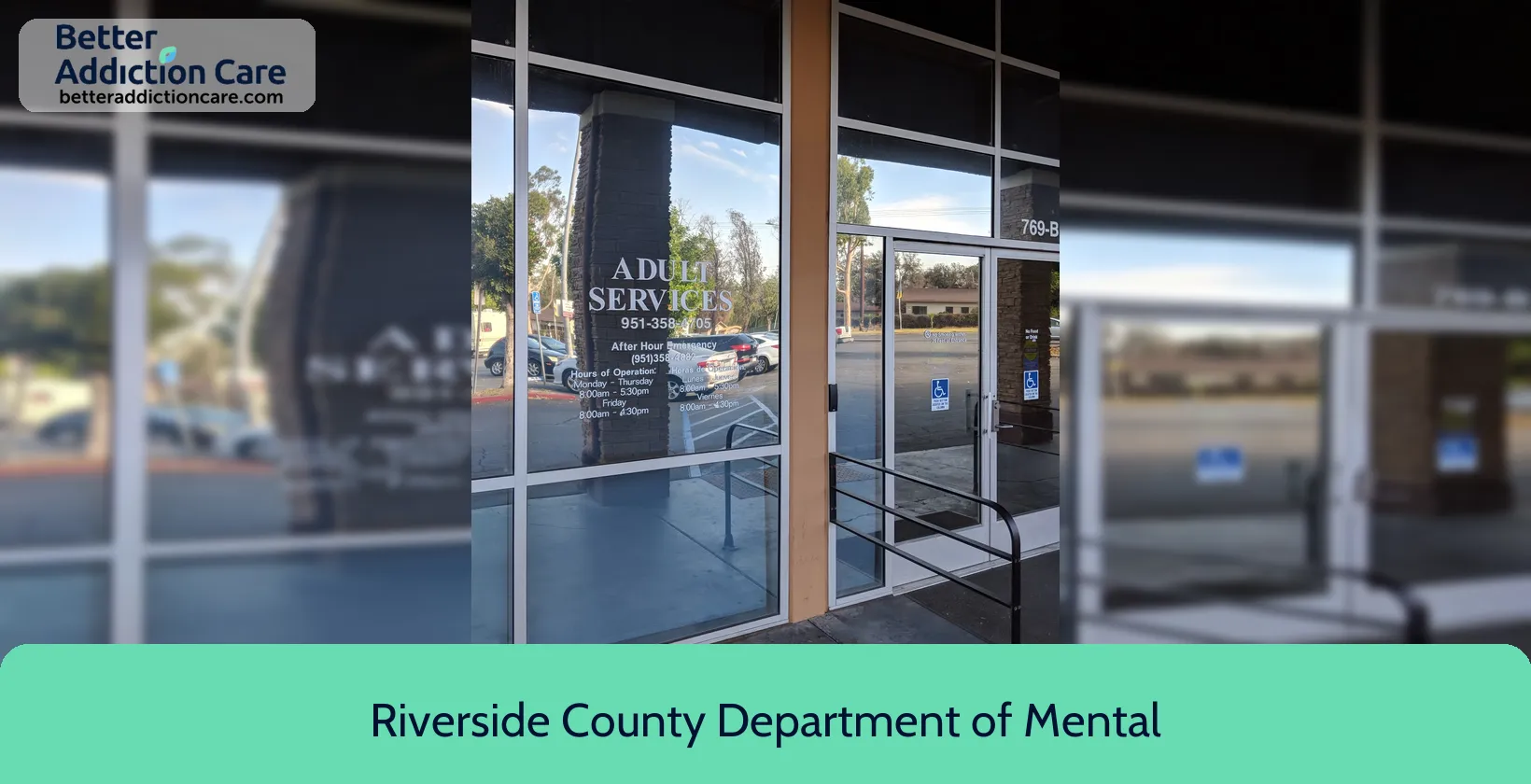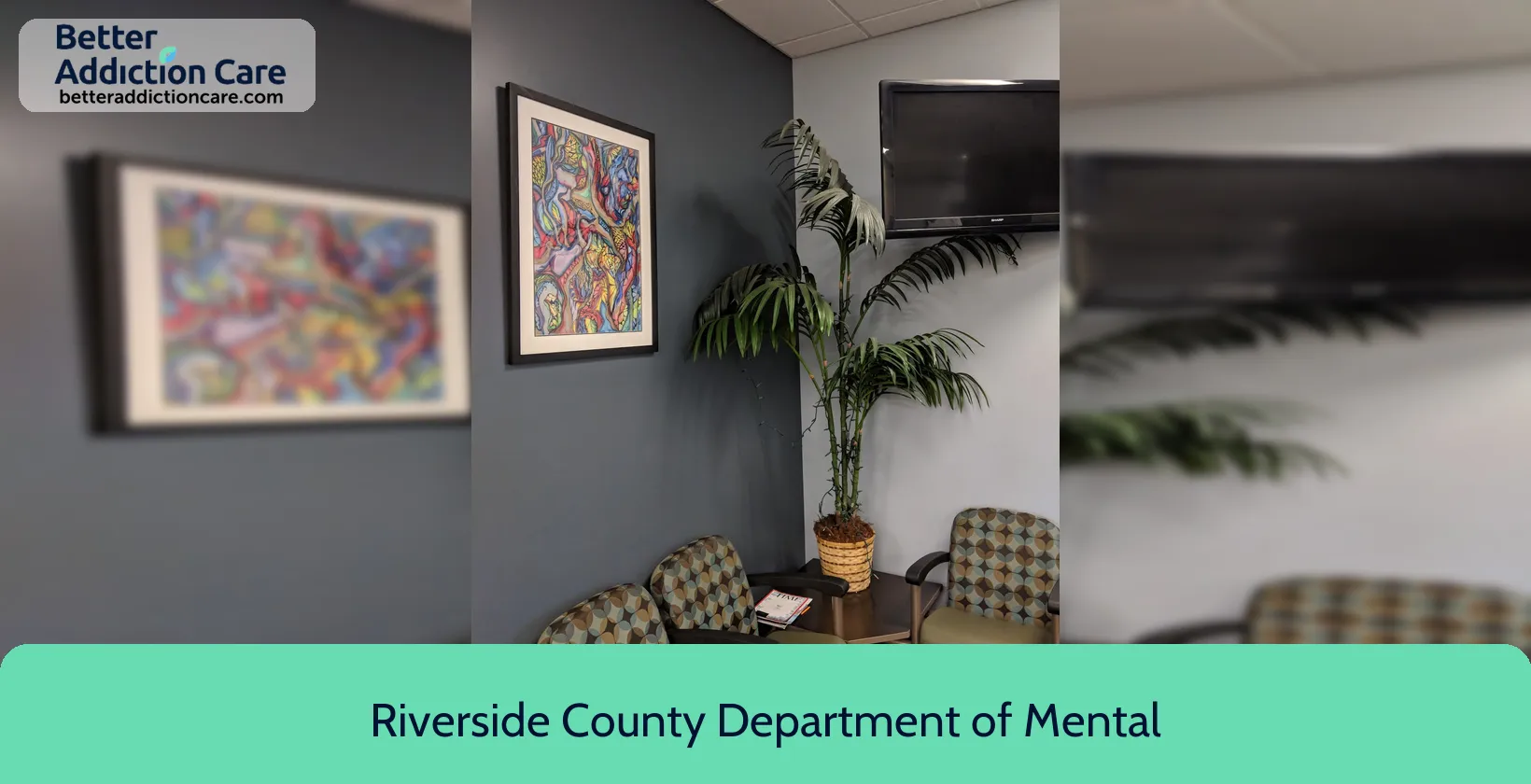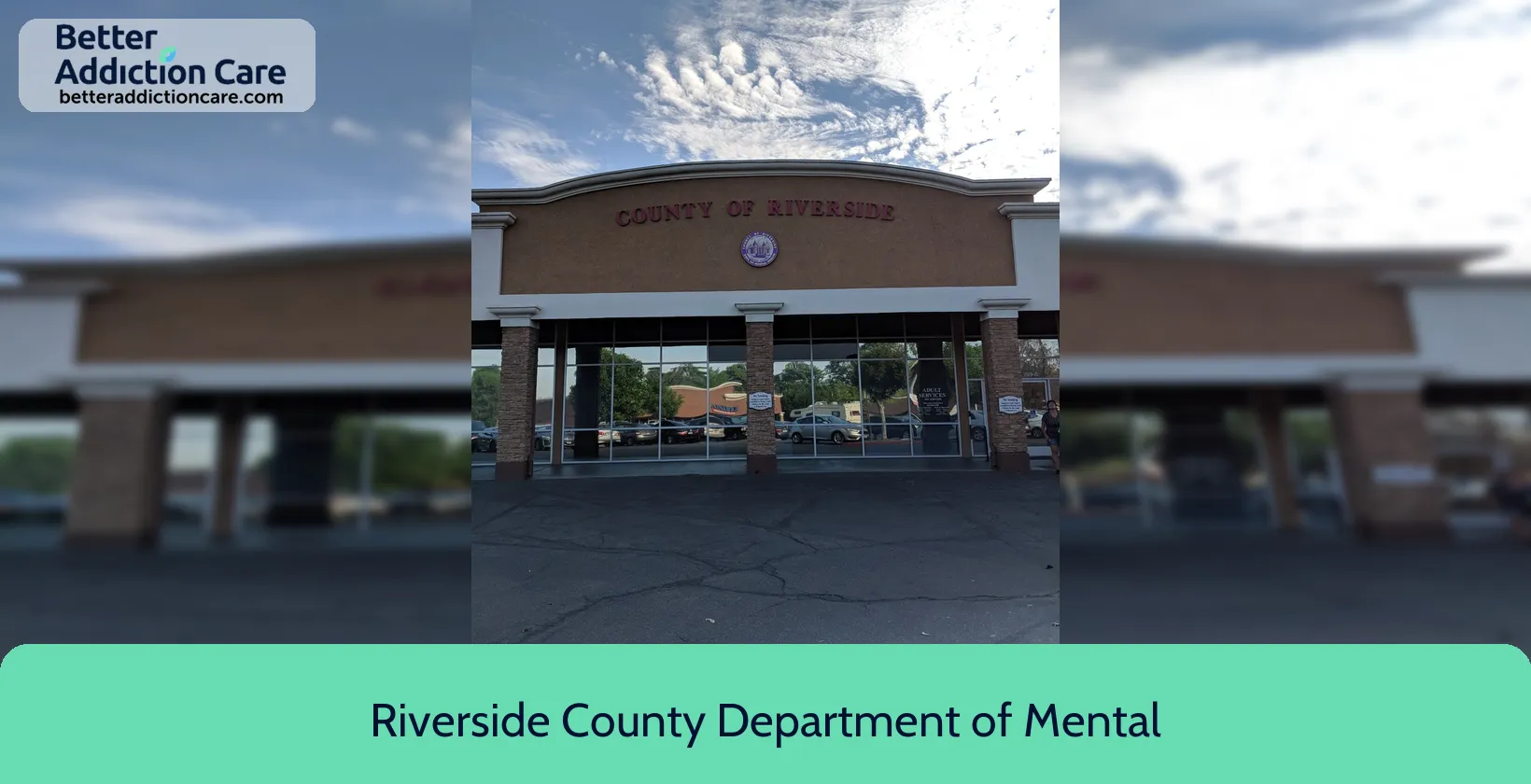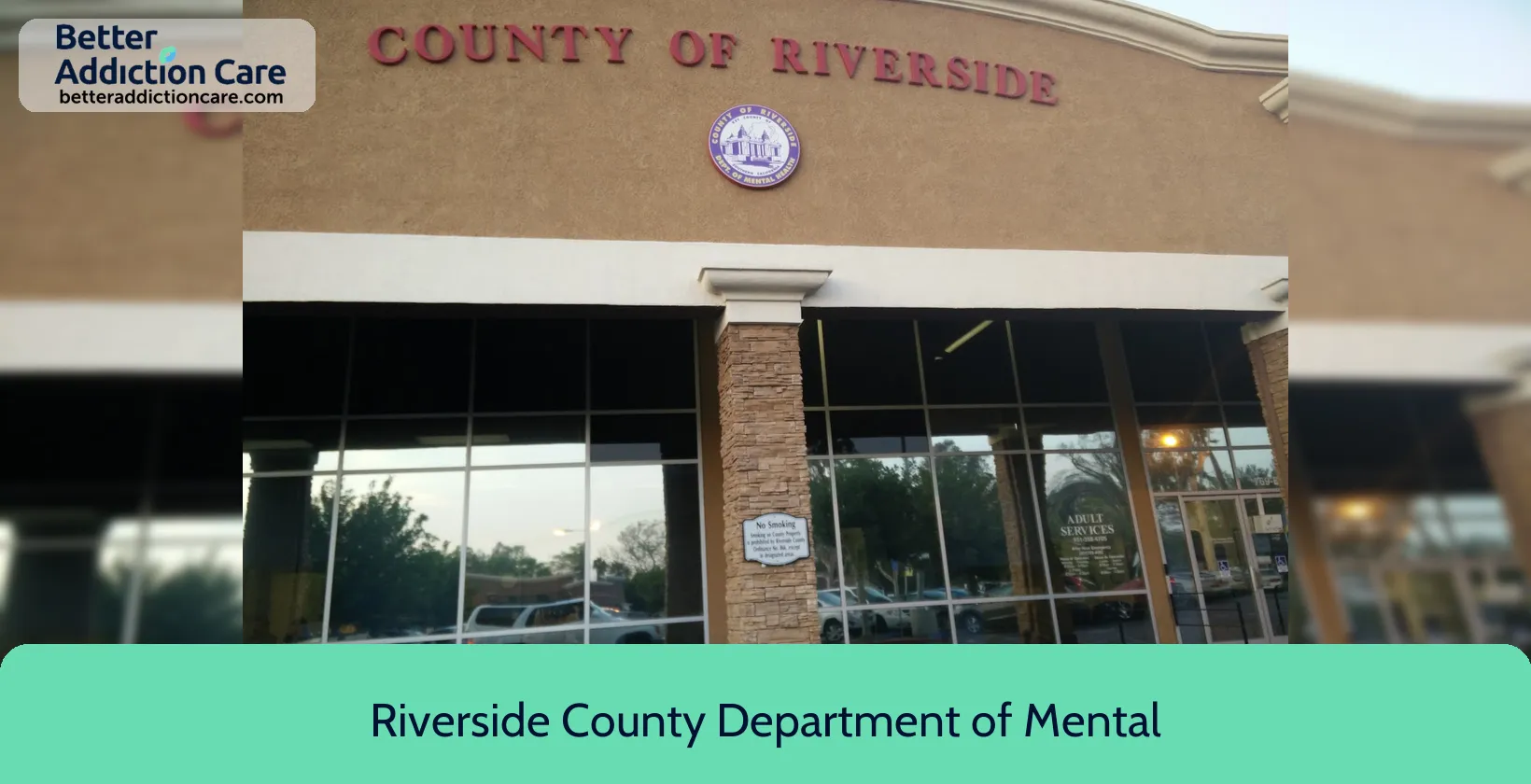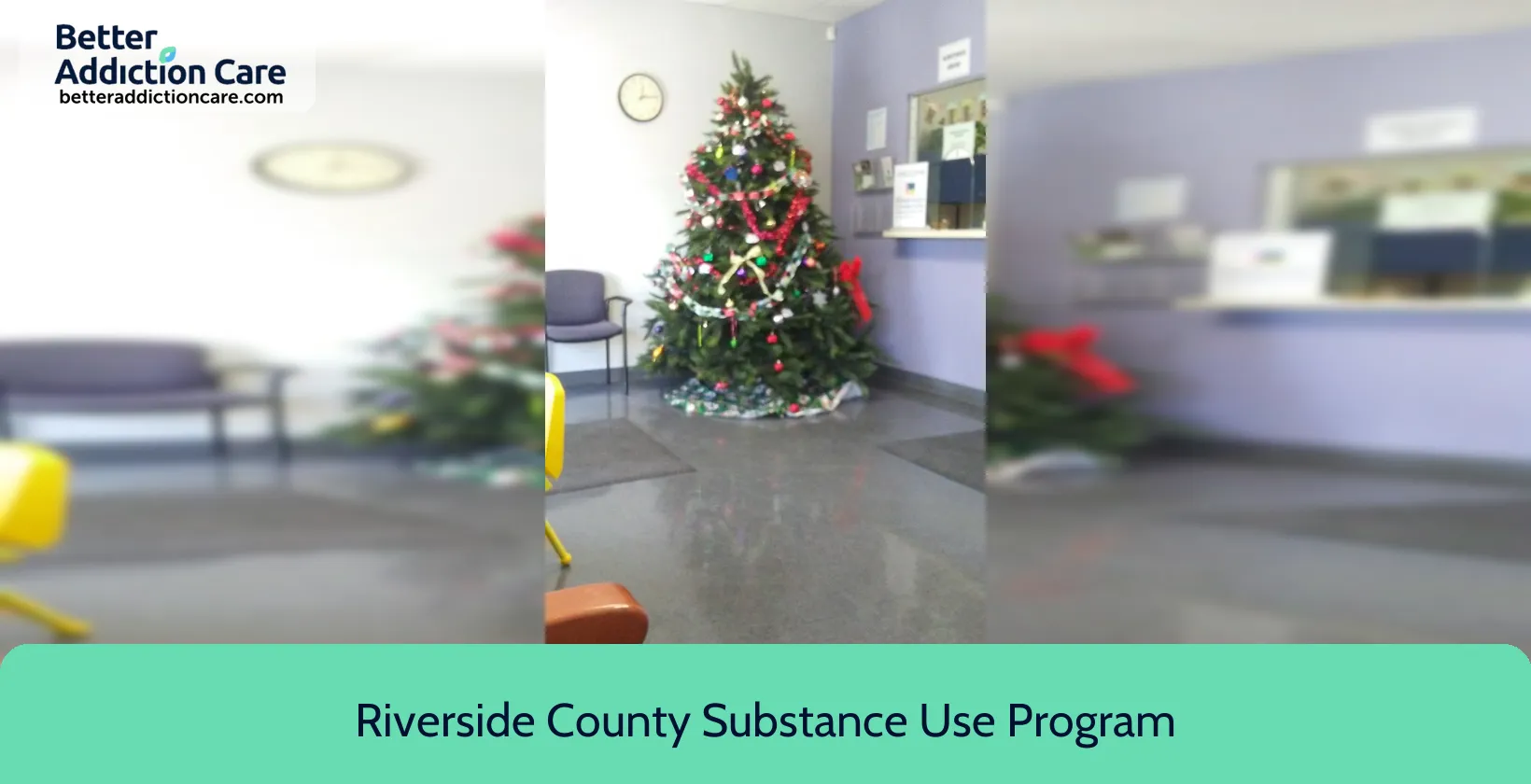Riverside County Department of Mental Health - Blaine Street Adult Clinic
Overview
The Blaine Street Adult Clinic, in Riverside, California, offers comprehensive mental health care to people suffering from severe and persistent mental health conditions. The facility is open to all people, regardless of gender or faith.
The clinic provides a wide range of treatments, including crisis intervention, psychiatric examinations, recovery management, medication services, case management, and dual-diagnosis care. These treatments are intended to promote long-term rehabilitation and mental stability. The clinic offers cognitive behavioral therapy (CBT), anger management, assertive community treatment, and exercise therapy. In addition, peer recovery services are available to provide support through shared experiences.
The Blaine Street Adult Clinic's primary focus is outreach to homeless people with mental health issues, which provides important care to this vulnerable population. The clinic is accredited by The Joint Commission, which guarantees high-quality care.
Riverside County Department of Mental Health - Blaine Street Adult Clinic at a Glance
Payment Options
- Medicaid
- Private health insurance
- Cash or self-payment
Assessments
- Comprehensive mental health assessment
- Comprehensive substance use assessment
Age Groups
- Adults
- Young adults
Operation
- State government
Highlights About Riverside County Department of Mental Health - Blaine Street Adult Clinic
6.62/10
With an overall rating of 6.62/10, this facility has following balanced range of services. Alcohol Rehabilitation: 8.00/10, Drug Rehab and Detox: 6.00/10, Insurance and Payments: 6.00/10, Treatment Options: 6.49/10.-
Alcohol Rehabilitation 8.00
-
Treatment Options 6.49
-
Drug Rehab and Detox 6.00
-
Insurance and Payments 6.00
Accreditations
The Joint Commission:

The Joint Commission accreditation for addiction and behavioral health is a prestigious recognition signifying a facility's commitment to delivering high-quality care and safety for individuals dealing with substance abuse and mental health issues. It involves rigorous evaluations and assessments, ensuring patients receive evidence-based treatment and exceptional care. This accreditation demonstrates a facility's dedication to continuous improvement and ethical practices, building trust among patients and healthcare professionals seeking top-tier addiction and behavioral health services.
Treatment At Riverside County Department of Mental Health - Blaine Street Adult Clinic
Treatment Conditions
- Mental health treatment
- Substance use treatment
- Co-occurring Disorders
Care Levels
- Outpatient
Treatment Modalities
- Individual psychotherapy
- Cognitive Behavioral Therapy
- Dialectical Behavior Therapy
- Group counseling
- Trauma-related counseling
Ancillary Services
Languages
- Sign language services for the deaf and hard of hearing
- Spanish
- English
Special Programs
- Clients who have experienced trauma
- Persons 18 and older with serious mental illness (SMI)

Additional Locations
Contact Information
Read our Most Recent Article About Drug Addiction
DISCLAIMER: The facility name, logo and brand are the property and registered trademarks of Riverside County Department of Mental Health - Blaine Street Adult Clinic, and are being used for identification and informational purposes only. Use of these names, logos and brands shall not imply endorsement. BetterAddictionCare.com is not affiliated with or sponsored by Riverside County Department of Mental Health - Blaine Street Adult Clinic.
